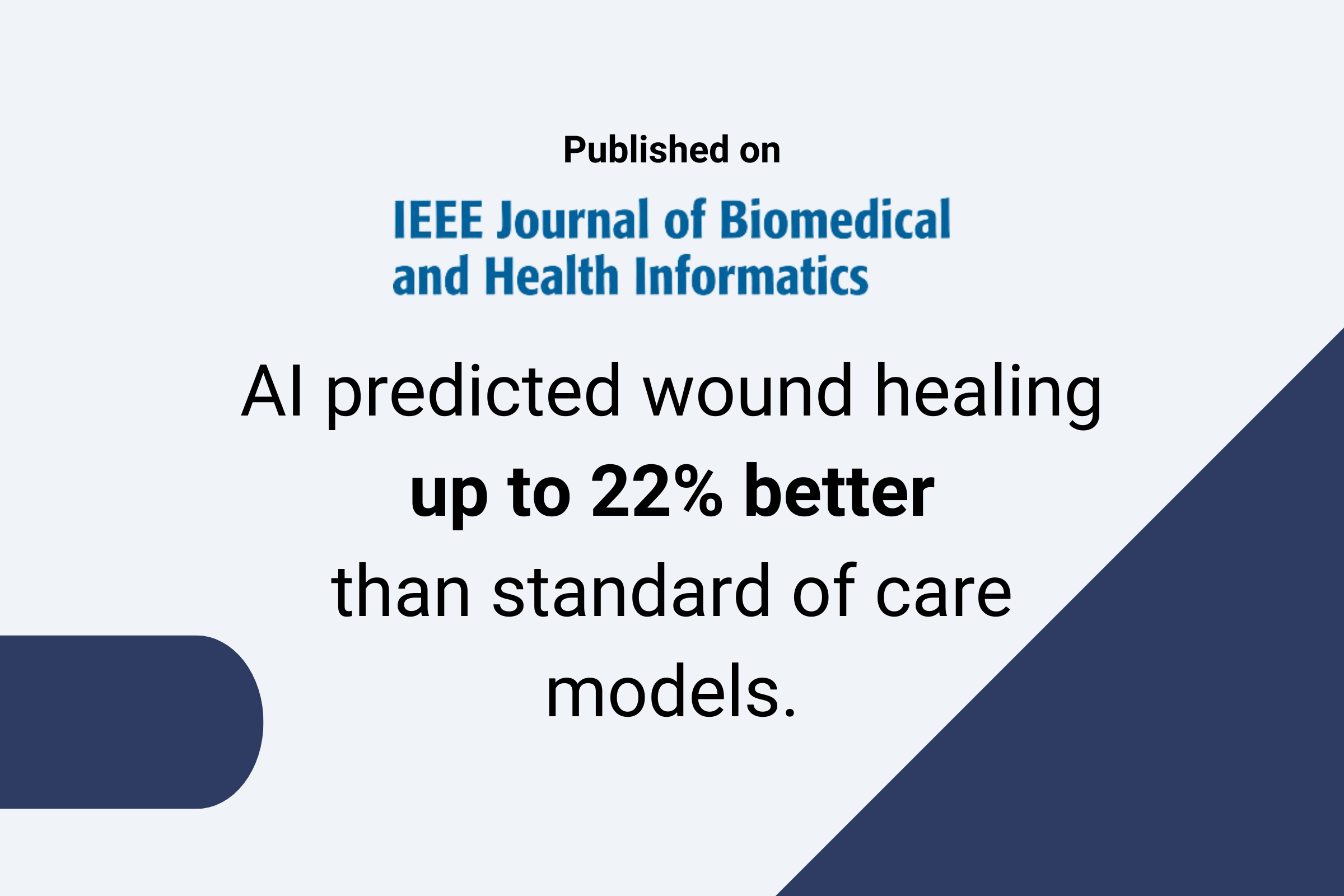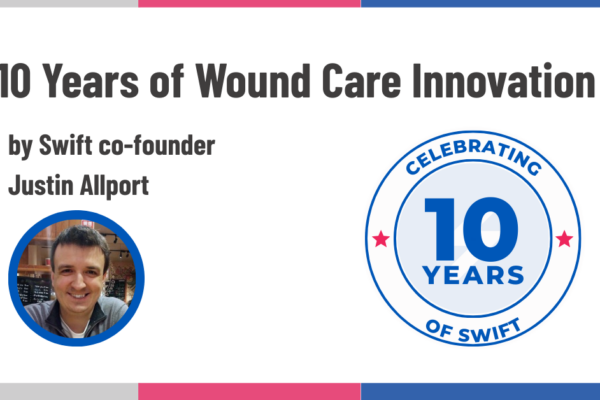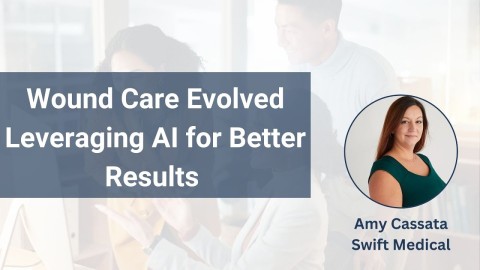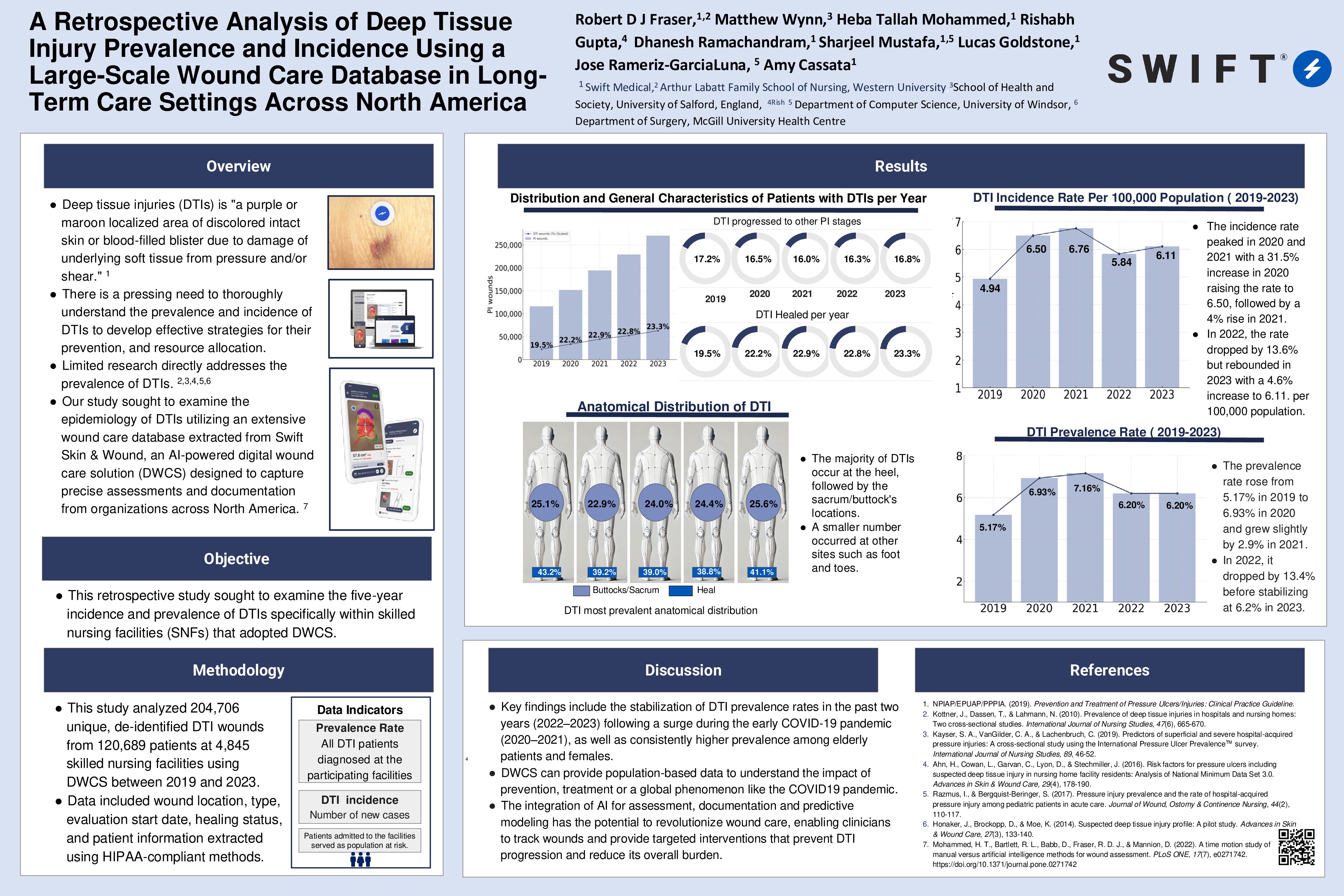Most wound assessments today rely on manual tools like the Pressure Ulcer Scale for Healing (PUSH) and Bates-Jensen Wound Assessment Tool (BWAT), which are prone to user misinterpretation and variability. To address this issue, a hybrid AI-powered prognostic model was developed that uses objective features from wound areas to quantify the risk of delayed healing. The model was trained using a dataset of 2.1 million wound evaluations from over 200,000 wounds.
Across various clinical settings, wound etiologies, sexes, age groups and wound ages, the AI-based model consistently outperformed PUSH and BWAT when quantifying the risk of wound healing. Here are the key takeaways:
- The hybrid model uses 10 whereas, the fully objective model uses 5 wound features to predict wound healing
- The best model is 12.5% better at predicting wound healing than industry gold standard (PUSH) within a skilled nursing facility setting
- The best model is 22% better at predicting wound healing than other standard of care models like BWAT within a home healthcare setting
Read the full article in IEEE Journal of Biomedical and Health Informatics: https://ieeexplore.ieee.org/document/10058154





